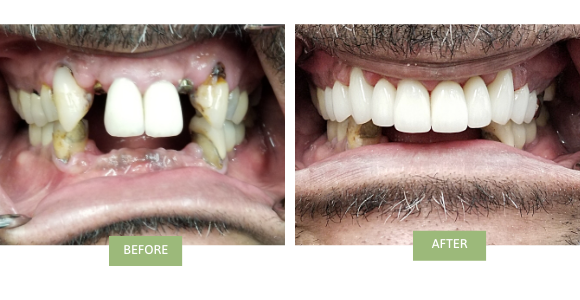Dental Bridges NYC
Dental Bridge Types, Benefits, and Costs
Curious about dental bridges and how they can help replace missing teeth? This article covers the types, benefits, costs, and maintenance of dental bridges so you can decide if they’re right for you.
- Dental bridges fill gaps created by missing teeth, helping to restore function and maintain the shape of the face.
- Dental bridge types: traditional, cantilever, Maryland, and implant-supported. Each suited for specific dental needs and conditions.
- Costs for dental bridge varies significantly based on type of bridge, materials, how many teeth involved, with traditional bridge ranging from $800 to $3,500 per tooth and implant-supported bridge potentially exceeding $7,000.
What is a Dental Bridge?
A dental bridge is a fixed device used used to replace one or more missing teeth by bridging the gap between remaining teeth. This device consists of two or more abutment crowns placed over the abutment teeth or implants on either side of the gap and a false tooth (or teeth) in between, known as a pontic. Custom-designed, dental bridge fits your mouth perfectly, making your smile look natural and functional, similar to the natural teeth.

Dental bridge serves several purposes:
- It prevents the surrounding teeth from drifting out of position.
- Restore the appearance and function of missing teeth.
- Help maintain the shape of your face.
- It helps maintain bone supporting natural teeth.
Types of Dental Bridges
There are various types of dental bridges available, each designed to address specific dental needs and conditions. The four main types of bridges include traditional bridges, cantilever bridges, Maryland bridges, and implant-supported bridges.
Each type has unique features and benefits, so understanding the differences helps you choose the best option for your oral health.
Traditional Dental Bridge
Structure: Traditional fixed dental bridge is commonly used to replace one or more missing teeth. It consists of two or more abutment crowns placed over the existing teeth on either side of the gap and a artificial tooth, known as a pontic. The structure typically includes a metal framework overlaid with porcelain, it is called a porcelain fused to metal or high noble metal bridge. They provide both strength and an aesthetically pleasing appearance. With latest developments in cosmetic dentistry all porcelain bridges or all ceramic bridges are becoming a more popular option among patients and doctors.
Best for: We do not want to ever touch healthy teeth. Thus fixed dental bridges are particularly effective when abutment teeth are periodontally healthy but have been compromised by tooth decay or had root canal therapy performed on them. They are ideal for patients who have lost one or more adjacent teeth and need a durable and long-lasting solution. Since there are several abutment teeth the biting force evenly spread among these teeth which ensures that the bridge is strong enough to withstand daily use while blending seamlessly with your natural teeth.
Dental Cantilever Bridge
Structure: Unlike a traditional dental bridge, which relies on two abutment teeth for support, a cantilever bridge requires only one abutment tooth. This makes them suitable for areas with a strong adjacent tooth but no support on the other side of the gap.
Best for: Tough a more affordable option then the traditional fixed bridge or a single implant, due to extra stress put on the abutment tooth, it is recommended only in a very few situations:
- To replace the last missing tooth, i.e. there is no other anchor tooth to place a 3-unit bridge and implant is not an option for a financial issues or due to severe bone loss.
- The anchor tooth is healthy to properly support this type of bridge.
Maryland Bridge
Structure: Maryland bridge is also referred to as resin-bonded bridge. Resin-bonded bridges are often used to replace missing front teeth. These bridges feature a false tooth supported by a metal framework with “metal wings” bonded to the back of support teeth. This type of bridge requires minimal preparation of the nearby teeth, making it a less invasive option compared to traditional bridges.
Best for: The least expensive, Maryland dental bridge, has the most limitations in it’s use. Due to limited support it cannot be used for chewing. Thus Maryland bridge is used predominantly for cosmetic reasons to replace front teeth. Often it is used as a semi-temporary solution while patient is preparing for implant restoration down the line. They are often used for younger patients, like children under 17, who have lost a permanent tooth but cannot have implant surgery yet due to growing bones.
Implant-Supported Bridge
Structure: Implant-supported bridge provide superior support and stability by anchoring directly to the jawbone using dental implants. Unlike traditional bridges, an implant supported bridge does not require the alteration of adjacent teeth, as they are supported by titanium posts surgically placed into the jawbone. This makes them ideal for patients seeking a long-lasting, natural-looking solution.
Best for: Note, implant bridge is used only if you need to replace 3 or more consecutive teeth. If you have only one or two missing teeth best treatment will be an implant, an abutment and a crown, not an implant bridge!
Benefits of Dental Bridges
- Aesthetics: Dental bridges look natural and give you confidence and overall well being.
- Functionality: They enhance chewing efficiency and improve speech by filling gaps that cause pronunciation issues.
- Stability: Dental bridges offer more stability than dentures which can pop out while eating or speaking.
- Oral Health: They prevent adjacent teeth from shifting, maintain facial alignment and shape.
Dental Bridge Problems
As technology and dentistry advances some of the types of bridges become less popular among restorative dentists because of the problems and negative impacts they have on the jawbone, periodontal health and the natural tooth:
- Damage to Natural Teeth: Preparation for a cantilever or traditional fixed bridge involves filing down the supporting teeth to fit the abutment crowns which can affect the long term health and integrity of these teeth. That’s why it’s best to choose these options if the abutment teeth need to be restored with a dental crown. After being filed down the adjacent teeth used as anchors for a dental bridge are more prone to decay if not properly maintained.
- Stability Problems: Though the most affordable options, Cantilever and Maryland bridge do not offer the same level of stability as traditional dental bridges. Due to limited support these type of bridges are more prone to dislodge under heavy biting force.
- Bone Loss and Gum Disease: Unlike dental implants, bridges do not prevent bone loss in the area of the missing tooth. Over time this can lead to gum disease and gum recession around the bridge area.
- Cleaning Difficulty: Special flossing tools or techniques are required to clean under the bridge properly which can be inconvenient. Improper cleaning can lead to periodontal disease or infection around the bridge.
- Damage to the bridge: Biting into hard or sticky foods, accidents or injuries can damage the bridge. Dental care is needed for repairs or replacements.
- Limited Applicability: Bridges are not suitable for patients with severe periodontal disease, significant bone loss or many missing teeth.
While a dental bridge offers an effective solution, it’s important to be aware of potential issues and work closely with your dental professional to ensure the bridge lasts. Regular check-ups, proper oral hygiene, and promptly addressing any concerns can help maintain the bridge’s integrity.
If your dental bridge came off and you are looking for “same-day emergency dentist near me” call 209 NYC Dental for same day bridge recement.
Call Us Now Request Appointment Online
Dental Bridge Procedure
Dental bridge is a common dental procedure that involves several steps, initial consultation, dental impressions and placement of the permanent bridge. These steps ensure the bridge fits perfectly and functions well.
Initial Consultation
During the initial consultation, our dentist will use digital x-rays to asses your teeth, gums, and bone, to check if other dental procedures like root canals or gum treatments are needed.
Our treatment coordinators will discuss the dental bridge cost and payment options with you. If you have dental insurance, we will assist in submitting a pre-approval to your insurance company.
Tooth Preparation and Impression
Traditional or cantilever bridge follow the same treatment process. To learn about dental implant supported bridges and crowns check out our website.

3rd impression of the mouth with missing teeth
After administering local anesthesia preparation dental bridge follows. It involves removal of tooth decay and reduction of the abutment teeth to create space for new crowns. Digital scans or dental impressions of your teeth are then taken to ensure a perfect fit for the bridge. The digital impression is then sent to a lab for fabrication. Our dentist will construct and place a temporary bridge in the mean time.
Bridge Placement
Once ready, the temporary bridge is removed, and the final bridge is placed and cemented. This involves ensuring the bridge fits well and matches your natural teeth before permanent cementation. Lastly, the bridge is adjust to fit perfectly your bite.
Cost of Dental Bridges
The dental bridges cost varies based on several factors. Understanding these factors can help you navigate dental bridge costs, aiding in effective planning and budgeting for your dental restoration.
How Much Does a Dental Bridge Cost Without Insurance?
In New York City dental bridge cost without insurance starts at $2400. The cost for implant-supported bridges starts at $7,000 and goes up. The cost of a dental bridge will increase depending these factors:
Number of Units: Each abutment crown (anchor crown) and a fake tooth (replacement tooth) is considered a unit. Number of teeth and overall length of the dental bridge is directly correlated to the cost of a dental bridge. So the more units are in the bridge the more expensive it is. The cost of a dental bridge unit of the “non-implant bridge” can range from $800 to $3,500 per tooth.
Type of Bridge: Non-implant bridges are less costly in the immediate sense compared to the implant bridges. Since you are paying for each part of the dental implant and its restoration: implant + connector + crown, the cost per replacement tooth starts form $4,000 plus cost of a dental pontic (false tooth) which starts at $800. Important to note, if you have one missing tooth, you need only one implant and one restoration compared to traditional 3-unit bridge. Do not forget that implant restorations offer the most reliable and long-lasting result. So in a long run it is a worth while investment.
Material Used: Porcelain fused to metal bridges generally cost between $800 and $2,000 per tooth. All-porcelain or ceramic bridges might be pricier due to their aesthetic appeal but you will not end up with a metal bend showing after few years.
Need for Additional Dental Procedures: Procedures like tooth extractions or root canals can add significantly to the overall cost of dental bridges.
Geographic Location of Your Restorative Dentist: Costs vary by location; urban areas may charge higher fees than rural areas.
Expertise of Dental Professional: More experienced dentists may charge higher fees, reflecting their expertise and quality of care.
Dental Bridge Cost with Insurance
Many dental insurance plans cover part of the dental bridge cost, the amount depends on the dental insurance company plan limitations. Always check with your insurance company on how will your dental insurance cover dental bridges. You can also ask your dentist to submit a pre-authorization to get the detailed breakdown of dental insurance coverage.
Participation status of the dental professional in your dental insurance is an important factor that can affect the cost of the dental bridge. In-network dentists charge contracted dental insurance rate, lowering your out-of-pocket expenses.
Dental Bridge Payment Options
Financing options like payment plans and personal loans can make dental bridges more affordable. Many dental offices offer in-house financing with interest-free options if paid within a certain time frame.
Healthcare installment loans are also an option for dental procedures.
Taking Care of Your Dental Bridge
Proper care and maintenance is key to your dental bridge’s longevity and success. Follow these guidelines and your bridge will last for years.
Oral Hygiene: Good oral hygiene is important to maintain your dental bridge and dental health . Special tools like floss threaders help clean under the bridge, prevent plaque buildup.
Diet: Dietary changes, like avoiding very hard or cold foods, can prevent damage to your dental bridge.
These are the guidelines to extend the life of your dental bridge.
Alternatives to Dental Bridges
While dental bridges are popular, there are other alternatives to consider. Dental implants and partial dentures are viable alternatives to dental bridges, each has its own benefits to suit your dental needs.
Choosing the right option depends on factors like dental health, budget, and personal preference. Knowing these options helps you make the best decision.
Dental Bridge vs Implant
Dental implants are a long-lasting alternative involving the surgical placement of titanium posts into the jawbone. Though more expensive and time-consuming, implants offer a more natural look and feel.
Partial Dentures
Partial dentures are removable appliances that are an affordable alternative to bridges in replacing missing teeth. They offer a flexible and cost-effective solution, though periodic adjustments may be needed for comfort and fit. It is important to know that they partial dentures not provide bone support and may have adverse affect on bone health with time.
Restore Your Mouth with 209 NYC Dentists!
Dental bridges are a highly effective solution for replacing from a single missing tooth to multiple teeth, offering both aesthetic and functional benefits. Understanding the different types of bridges, the dental bridge cost, and the procedure can help you make an informed decision which type of artificial teeth is the best option for you. Remember, proper care and maintenance are key to ensuring the longevity of your dental bridge.
If you’re considering a dental bridge, consult with 209 NYC dentists to explore the best options for your specific needs. As a top-rated multi-specialty dental office in NYC we are well equipped and qualified to provide you with the best treatment option.
Our board-certified periodontist and dental implant specialist, Dr. Jin Wang and his counterparts, restorative dentists, Dr. Ifarimov and Dr. Nikitayev, have restored many mouths, from a single tooth replacement to all-on-four dental implants, brining back full function to many happy patients. Take charge of your oral health and enjoy the confidence that comes with a beautiful, functional smile. Schedule your consultation today!
Frequently Asked Questions
What are the different types of dental bridges?
The main types of bridges include traditional dental bridge and implant-supported bridges. Other less common options are cantilever bridges, and Maryland bridges. Each type of dental bridge is designed to address specific dental needs and conditions. Due to its construction and materials used type of bridge will also determine how much dental bridge costs. Selecting the right type is crucial for achieving optimal oral health outcomes.
How long does a dental bridge last?
Dental bridges can last between five to 10 years with proper care, and some may even exceed a decade. Regular dental check-ups and good oral hygiene are essential for maximizing their longevity.
Call Us Now Request Appointment Online
What Our Patients Are Saying
With over 1000 reviews from all over the web with an average rating of 4.9 we are proud to be in the Manhattan Dental Elite.
 Our History
Our History
 Our Providers
Our Providers
 About Us
About Us
 Blog
Blog
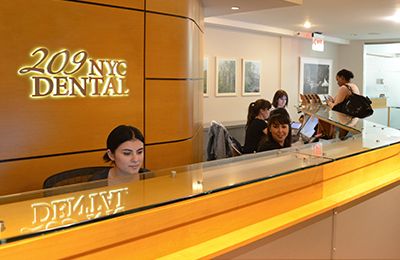 Contact us
Contact us
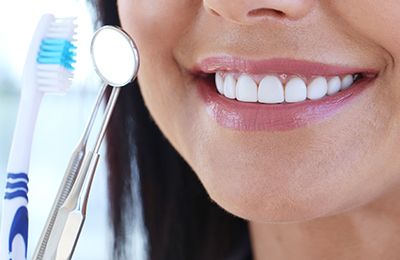 Diagnostic & Preventive
Diagnostic & Preventive
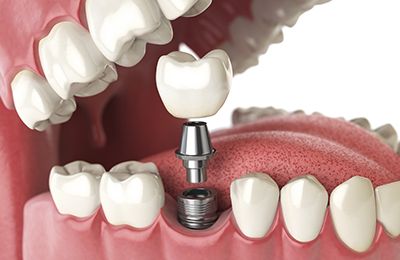 Implant Dentistry
Implant Dentistry
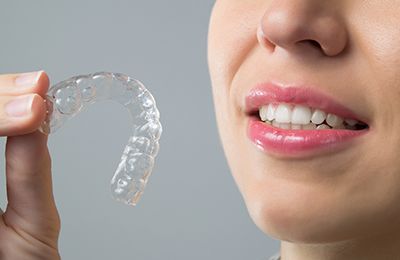 Clear Braces - Invisalign
Clear Braces - Invisalign
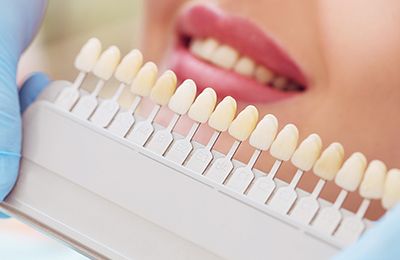 Cosmetic Dentistry
Cosmetic Dentistry
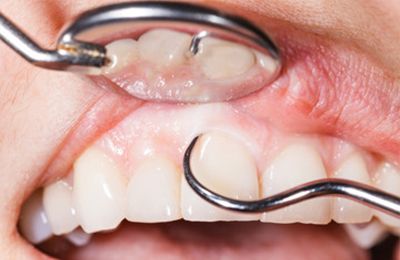 Periodontics
Periodontics
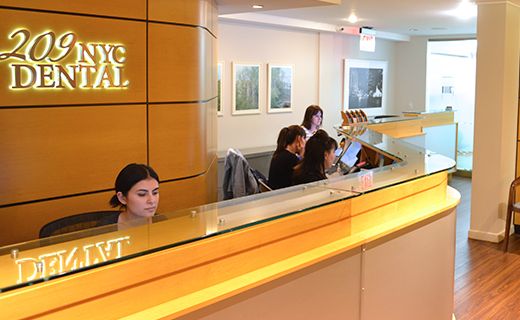 Patient Forms
Patient Forms
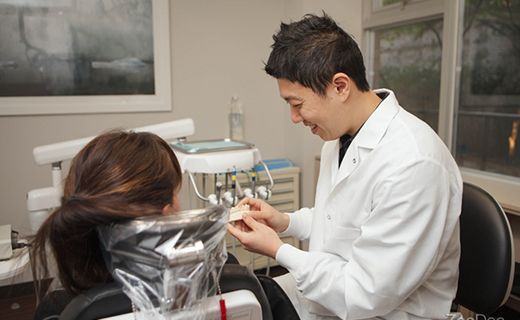 Payment Information
Payment Information
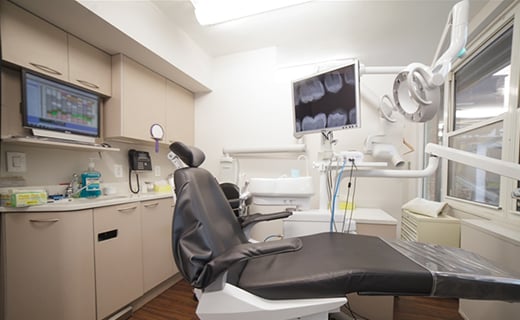 Insurance Options
Insurance Options
 CareCredit Dental
CareCredit Dental
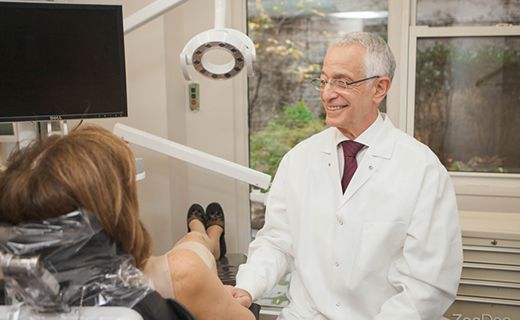 Appointment Policy
Appointment Policy
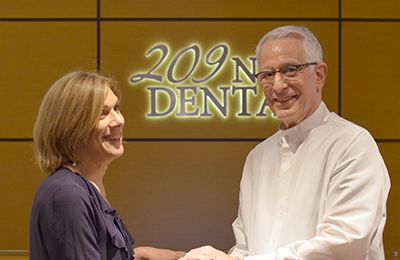 Free Consultation
Free Consultation
 Complimentary Teeth Whitening
Complimentary Teeth Whitening
 Teeth Whitening
Teeth Whitening








